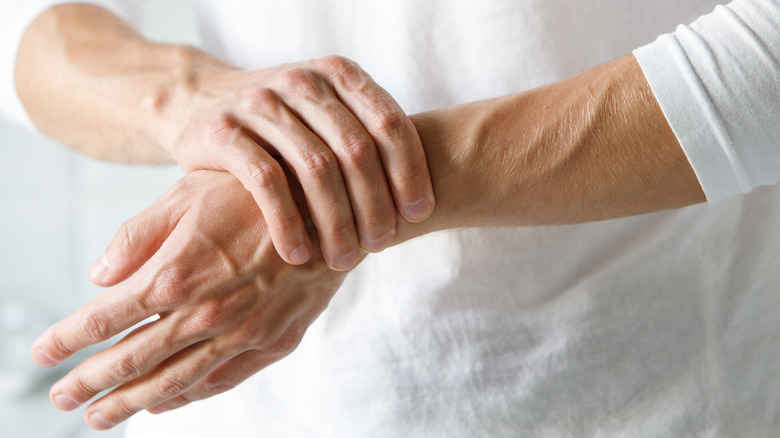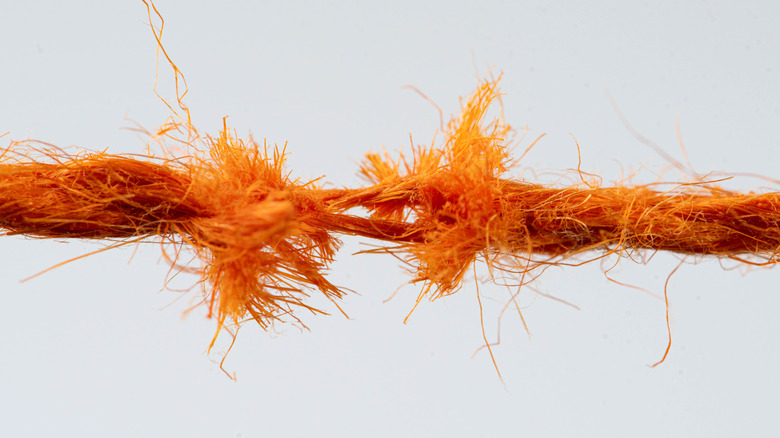Here's Why Your Hands Are Always Falling Asleep
Waking up in the middle of the night to numb hands is never a fun feeling, but it's certainly not an uncommon one.
It's a feeling that most people have felt in their life at some point or another, (via Healthline). When your hands are asleep, or the feeling of "pins and needles," it's usually pretty simple to get the sensation flowing back with some quick movements and some relocating of limbs. But what causes this feeling in the first place?
According to the Mayo Clinic, the numbness in your hands usually boils down to a few options: damage, irritation, or compression of the nerves in your arm or wrist. While you sleep, your body can move around in a bunch of different ways, sometimes leading you to unknowingly twist or bend your wrists, (via ProactivePT). When this happens, the nerves in your arms and wrists are squeezed and constricted and since you're asleep, it can be awhile before you wake up and realize.
Nerve damage can cause your hands to fall asleep
However, this numbness doesn't only happen while you sleep. If your wrists or hands are put in any compromising positions, the blood flow to your nerves will start to slow down, (via ProactivePT). According to Harvard Health Publishing, this abnormal pressure on your nerves causes a symptom called paresthesia. While usually painless, if there's no obvious cause, this sensation can sometimes be a symptom of other underlying medical issues (via National Institute of Neurological Disorders and Stroke).
According to WebMD, nerve damage could be caused by a myriad of factors ranging in how serious the conditions are. Nerve damage can be caused by high blood sugar, which is very common in diabetics; something as simple as a pinched nerve can have the same numbing feeling. Sometimes even the extra fluids during pregnancy can press on the nerves in your body. While a simple lack of vitamin B or E could be the culprit, you should always check with a doctor if symptoms of paresthesia are more common than not. Several viral bacterial infections have been known to cause nerve damage, as well as even a benign tumor growing or resting on your nerves.
Of course, if you're a regular consumer of alcohol and noticing frequent pins and needles, you may want to limit yourself a bit. According to Medical News Today, too much alcohol consumption can lead to nerve damage in your limbs and other parts of the body, which may not be worth the risk.

